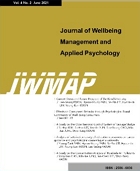 E-ISSN : 2586-6036
E-ISSN : 2586-6036
KWON, Woo-Taeg
Abstract
Purpose: The purpose of this study is to investigate whether wetland has antimicrobial activity on pathogenic bacteria in the toilet bowl. Research design, data and methodology: Air-dried mud obtained from "Jilmoe Bog" wetland was packed and dissolved in the autoclaved saline. Antimicrobial susceptibility was assessed against three Gram-negative bacteria using disk diffusion method and broth dilution method. Identification of specific bacterium presented in wetland supernatant was performed using matrix-assisted laser desorption/ionization time-of-flight mass spectrometry. Results: Incubation of three Gram-negative bacteria with wetland supernatant inhibited bacterial growth of the bacteria, otherwise increased prevalence of specific bacterium. It was confirmed that Pseudomonas putida was presented in wetland supernatant. Conclusions: The results presented in this study might provide the possibility to utilize wetland supernatant as a bioremediation of toilet bowl bacteria.
- keywords
- Antimicrobial susceptibility, Wetland, Disk diffusion method, Broth dilution method, Toilet hygiene
- Downloaded
- Viewed
- 0KCI Citations
- 0WOS Citations













